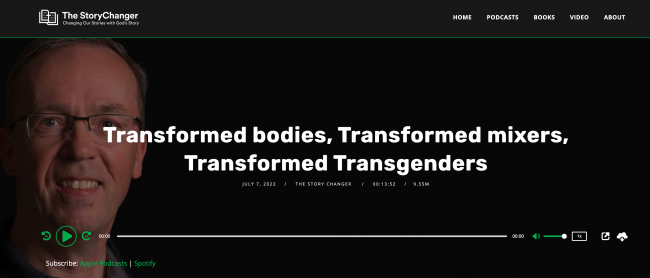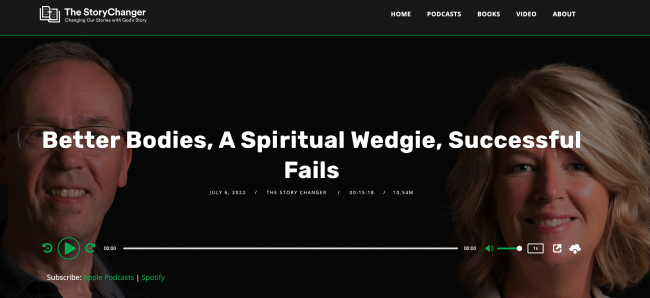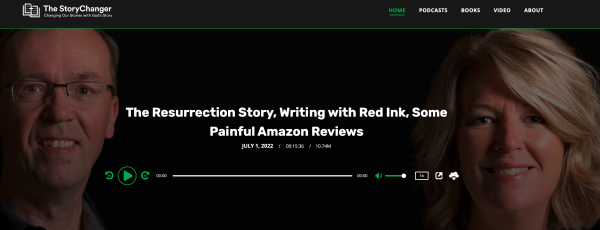
INTRODUCTION
What will happen if I admit my weakness? I’m sure many of you have asked that question as we’ve worked our way through 2 Corinthians. Maybe you’ve come close to admitting your weakness but then held back. “What will people think/say/do if I admit my depression/abuse/trauma/temptation/doubt/grief?”
Well, I have to be honest with you, some will take advantage of your confession of weakness. Some will look down on you, speak down to you, and even try to put you down further. Sadly, some seem to take pleasure in kicking others when they are down. They see your weakness as an opportunity to make yourself look worse and themselves look good. I don’t want to discourage you from admitting weakness, but I want to be honest with you about what to expect.
But, the benefits of admitting our weakness is far greater than the loss. You may lose shallow relationships with some, but you will gain deeper relationships with others and with God. That’s the closing message of the Apostle Paul in these final verses of his letter.

BACKGROUND
I hope you’ve seen throughout this letter that we find God’s strength when we admit our human weakness. Paul’s taught this in many different ways and many repeated ways. Now as he comes to the end of the letter, he motivates us with the benefits and blessings of accessing God’s strength through admitting our weakness.
What will happen if I admit my weakness?
1. WEAKNESS IMPROVES OUR RELATIONSHIPS WITH OTHERS (11-13)

Finally, brothers, rejoice. Aim for restoration, comfort one another, agree with one another, live in peace; and the God of love and peace will be with you. Greet one another with a holy kiss. All the saints greet you (11-13).
What does a “strong” church look like? If the church leaders and members all project self-confidence and success, what will be the result? The result will be the Corinthian church: a miserable church, a divided church, an argumentative church, a competitive church, a selfish church, a stressed out church, a self-sufficient church, and an unwelcoming church.
What does a “weak” church look like? If the church leaders and members admit their weaknesses and need of one another, what will be the result? As I said in the introduction, we will lose some shallow relationships, but we will gain many deep relationships with one another. If the Corinthian church followed Paul’s manifesto of strength through weakness, the result will be the kind of church described in the closing verses of this final chapter.
- Rejoicing: “Finally brothers, rejoice” (11). Instead of being mad and sad, they will be happy and joyful together.
- Restoring: “Aim for restoration” (11). Use church discipline not to punish but rescue and recover.
- Reviving: “Comfort one another” (11). “Comfort” means “put strength in” those who are down and out.
- Reconciling: “Agree with one another” (11). Work at agreeing more than arguing.
- Relaxing: “Live in peace” (11). Create a calm and tranquil environment that people can feel at home in.
- Reaching out: “Greet one another with a holy kiss. All the saints greet you” (12-13). Admitting weakness breaks down barriers, brings people together, and widens our view of others needs. Verbal and physical greetings communicated embrace and acceptance.
The best way to improve our relationships with others is admit our weaknesses to others and ask for help from others. There’s no letter in which Paul bares his soul more and “let’s it all hang out.”
CHANGING OUR STORIES WITH GOD’S STORY
Admit weakness. Start with one weakness and one person rather than all weaknesses to all people. Begin with someone you trust like a husband, wife, Dad, Mom, pastor, elder. Say, “I’m struggling with temptation/parenting/ depression/pain/loneliness/regret/bad decisions. Can you help me?”
Accept weakness. If someone entrusts you with a weakness, respond with compassion, care, and confidentiality. View it as a sacred privilege that invites you into a deeper relationship. Let’s build a culture of strength through weakness. As somebody put it in a message to me this week: “We love this church so much. The family of all messed up people trying to learn God weekly in our own different ways, yet still praying for and holding one another up in prayer.”
WEAK PEOPLE HAVE
STRONG RELATIONSHIPS
What about my relationship with God?
Admitting weakness improves our relationship with God too.
2. WEAKNESS IMPROVES OUR RELATIONSHIP WITH GOD (13, 14)

And the God of love and peace will be with you…The grace of the Lord Jesus Christ and the love of God and the fellowship of the Holy Spirit be with you all (13, 14).
How many times have you heard these words of benediction? Hundreds, maybe thousands of times. But have you ever thought about what they mean?
As we admit our weaknesses and accept the weaknesses of others we not only strengthen our relationships with one another, but with God. God responds with his love, peace, presence and blessing. But when people are strong, sufficient, and proud, he reduces their experience of his love, peace, presence, and blessing.
Weakness brings more grace
The grace of the Lord Jesus Christ be with you all. Grace comes first because although God’s love was first in the plan of salvation, grace is first in our experience of salvation. Why did Paul want the Corinthians to have more grace? First, because we can never have enough of it. However much grace we have received, there is more to receive. Second, because grace is what drains us of our strength and fills us with God’s. And third, it’s the secret to all Christian growth. That’s why Paul wanted this for everyone (1 Thess. 5:28; Gal. 6:18; 1 Cor. 16:23; Rom 16:20, Philemon 25). We get more of Christ’s grace by seeing our need of it more, asking for it more, experiencing it more, and thanking for it more.
Weakness brings more love
The love of God be with you all. The more we experience grace, the more we will experience the love of God. Grace is needed for us to see, receive, and enjoy God’s love. God’s love is especially attracted to the weak and the needy. His little ones get a lot of his love (Matt. 18:1-10). As we experience the Father’s love, we enter more into the fellowship of his Spirit.
Weakness brings more fellowship
The fellowship of the Holy Spirit be with you all. The ultimate consequence of Christ’s grace and the Father’s love is communion and fellowship with the Holy Spirit. It’s a fellowship that promotes holiness, a love of truth, and spiritual comfort. While the Holy Spirit is present in every believer, his activity level varies in each believer and therefore each believer’s experience of the Holy Spirit varies.
CHANGING OUR STORIES WITH GOD’S STORY
Bless by pointing all to God. Point people to the triune God, God in each of his three persons. Point people to the deity of all three persons. Point people to God’s character and its effects.
Bless by praying spiritual good for all. In a culture that prized material and worldly success, Paul wants the Corinthians to experience the deepest and highest spiritual blessings.
OUR EMPTINESS OPENS
GOD’S FULNESS
SUMMARY


A NEW CHAPTER
Jesus: Jesus’s experience of weakness in his humanity deepened his relationship with God and others. He learned obedience and dependence through the things he suffered.
Gospel: The Gospel is for the weak, the little ones, the nothings, and the nobodies. God desires to bless all such with his grace, love, and fellowship.
Discipleship: We disciple others by admitting our weakness to those we are mentoring and teaching, and encouraging them to do the same. Weakness strengthens discipling.
Deepen: Seek a deeper relationship with each of the three person’s in the Godhead. Consciously cultivate your relationship with the Father, with the Son, and with the Spirit.
DISCUSSION QUESTIONS
1. What are you usually thinking of when you hear the benediction in church?
2. When has admitting your weakness to others gone well? Or badly? What did you learn?
3. How can we as a body of Christians get better at admitting our weaknesses?
4. How have times of weakness improved your relationship with God?
5. Which of the three blessings in the benediction are most meaningful to you?
6. How can you be a benediction to others?
PDF OF SERMON NOTES.















